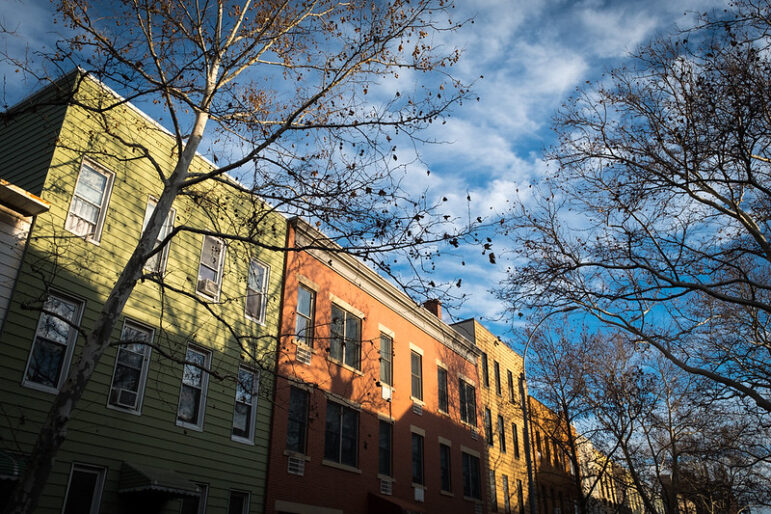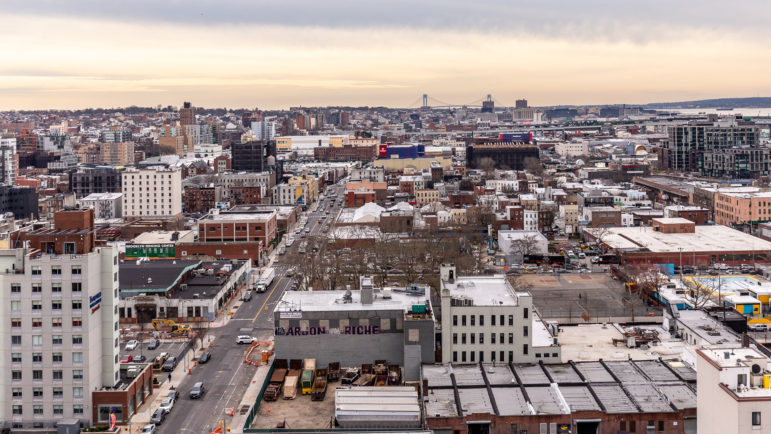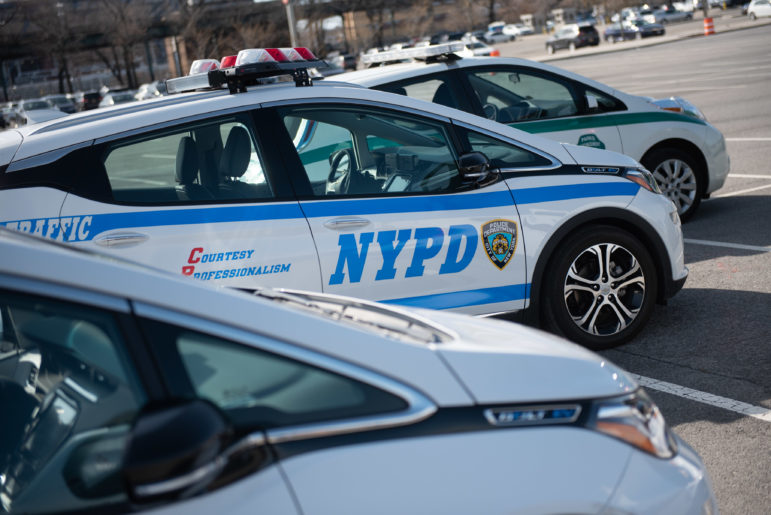
Courtesy NY1
The mayor and rival Sal Albanese at a 2017 mayoral primary debate. In that year, Mayor de Blasio privately raised twice the combined total of his eight primary or general-election opponents' fundraising, then received 58 percent of the matching funds allocated to the mayor's race.
I was member of the City Council in 1988 when we passed the Campaign Finance Act. The law was a reaction to high-profile scandals during the Koch administration. It was designed to match donations to candidates from city residents with taxpayer cash. The objective was to reduce the influence of money on our elections.
I reluctantly voted it, because at the time I thought it was better than nothing. I have been a passionate promoter of campaign-finance reform since my election to the NYC Council in 1982. I introduced campaign-finance reform bills during my tenure. I was the lead plaintiff in a lawsuit against the Federal Election Commission in 1993, based on the theory that federal campaign finance law deprives average citizens of equal protection under the law. As a NYC Charter 2019 Commissioner, I am attempting to advance a model based on Seattle’s reform. Campaign finance reform is bigger than one candidacy: It’s about saving our democracy. Below I will describe why the matching system is a failure and should be replaced by real campaign finance reform, like Seattle’s Democracy Vouchers.
The city’s law is flawed on many levels. It fails to curb pay-to-play corruption, the key legislative intent of the bill. We have had more pay-to-play scandals in the last seven years than we did during the Koch era. It allows lobbyists, developers and other self-interested entities to gather donations for candidates into the tens of thousands of dollars. The bureaucracy surrounding navigating the obstacle course of reporting and attempting to qualify for matching funds is nothing short of debilitating. Most candidates hire consultants from the cottage industry that has sprung up around this act.
Of course, the pecuniary beneficiaries of the act will argue that this is a model law. The threshold to qualify for matching funds as a mayoral candidate is incredibly high, especially if you are not accepting conflicted cash. Political insiders who have a Rolodex of political-class types and wealthy self-interested donors reach the matching threshold and are labeled “front runners” in media reports. Independent candidates lagging in fundraising are declared “long shots”. This further chills their ability to raise money making it virtually impossible to reach the matching threshold, providing the media with another reason not to cover those independent candidates. The bottom line: If you are a legitimate grass roots independent candidate running city wide, this law does nothing to help you compete.
I was a NYC Councilmember before and after we passed the Campaign Finance Act. As an independent local legislator I never had problems raising enough money to compete, because it doesn’t take that much money to be a viable candidate in Council races. I was victorious against tough opponents in several contests before and after the Act. It’s in citywide contests, especially in mayoral races, that this law is especially inadequate. The cold hard reality is that we have a strong mayor form of government; the power lies in that office. If you want to compete for that position you have to raise millions privately despite the matching system.
Get the best of City Limits news in your inbox.
Select any of our free weekly newsletters and stay informed on the latest policy-focused, independent news.
Guess who were the largest donors in the last mayoral contest? It was individuals from wealthy ZIP codes (including a lot of self-interested cash). Only 8 percent of total donations came from small donors (those giving $250 or less). Poor, working and middle-class New Yorkers are disfranchised in citywide contests. They live paycheck to paycheck and don’t have the cash to donate to campaigns. It’s well known that in our bankrupt political system, the policies of our government follow the money. A striking example of this is the neglect of the housing stock of mostly working class and poor NYCHA tenants by all levels of government.
New York State is making a mistake by considering passing a facsimile of the city’s campaign-finance law. It does nothing to curb corruption and very little to help independent candidates compete. The advocates are either naïve or, more sinisterly, want to ensure elite political insiders continue to dominate our politics. However, there is a real alternative!
I am an optimist and am thrilled that there are real campaign finance systems in other cities and states that we should be looking to and adopting. I am a big fan of Seattle’s Democracy Vouchers which is now being considered by Austin and Albuquerque. It’s the gold standard of campaign reform (although Maine, Connecticut, Arizona also have better systems than NYC), with the added benefit of saving the city money and dismantling the huge bureaucracy surrounding our Act.
Democracy Vouchers turn every voter into a donor. Voters receive four $25 vouchers that they can donate to anyone running for municipal office. If you are a resident of public housing with an annual income of $30,000 you will receive the same four $25 vouchers as the hedge fund manager earning $20 million annually. It will incentivize candidates to engage with average New Yorkers and ask them to donate their voucher instead of slavishly spending a significant amount of time dialing “heavy hitters” for dollars. The early results from Seattle are very encouraging as it has expanded the donor class across economic and racial lines. As people become more aware of the law the participation will only grow. Another tremendous benefit is that lobbyists and other entities doing business with the government cannot donate to campaigns. No more fundraising events jam packed with lobbyists delivering cash to legislators. It ends the legal bribery.
New York City and State should be in the vanguard of campaign finance reform, not leading from behind. States and cities are becoming laboratories for fixing our broken politics. New York, because of its size and prominence, should adopt Democracy Vouchers not only because it will improve governance for New Yorkers but it will have a ripple effect across the country.
Sal Albanese represented a Brooklyn district in the New York City Council from 1983 through 1998. He was a candidate for mayor in 1997, 2013 and 2017.







